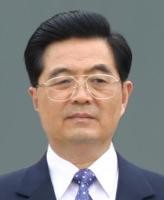BEIJING -- Hamstrung by domestic sensitivities and an inadequate institutional framework for managing its proliferating overseas interests, China has found itself behind the curve on Libya. Beijing's response has revealed the disparate interest groups within its foreign policy apparatus and the challenges it faces when responding to international events. Despite previous progress, China's foreign policy apparatus needs to become more adroit at public positioning and more discrete and institutionally consistent in its private diplomacy to secure its international rise.
Last Monday,* Beijing became the last major economic power to recognize Libya's National Transitional Council (NTC), 10 days after Russia did so and a week after the Chinese Ministry of Foreign Affairs acknowledged that Chinese arms manufacturers had discussed weapons sales with representatives of the government of Moammar Gadhafi during its final months in power. China has also been accused of blocking the release of frozen Libyan assets, a charge denied by Beijing but not discordant with their apparent reluctance to withdraw official support for the Gadhafi regime long after it had lost international credibility.
China's laggard and inconsistent Libya response reveals the competing forces at work in the rising giant's international policy-formulation structures. Foremost among these is extreme sensitivity over domestic opinion and the flow of information in the public sphere. China was by no means alone in failing to foresee the Arab Spring, but as the demonstrations gathered momentum, Chinese media shoe-horned events into standard domestic propaganda paradigms. The rebels were framed as destabilizing elements and the conflict itself as a cautionary tale of what happens when social harmony disintegrates. From there, Beijing left itself few options to reposition itself as it became clearer that the rebel movement was gaining traction and enjoying widespread popular support.

